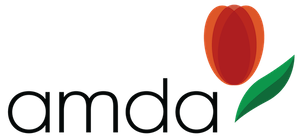CONCORD, Mass., July 11, 2017—Valerion Therapeutics, a clinical-stage biotechnology company that specializes in the development of therapies for orphan genetic diseases, today announced that it has initiated dosing in a Phase 1/2 clinical trial evaluating VAL-1221 in patients with late-onset Pompe disease. VAL-1221 is a novel fusion protein that combines Valerion’s antibody-mediated delivery technology with recombinant human acid alpha-glucosidase (rhGAA) to uniquely target both lysosomal and extra-lysosomal glycogen in the cytoplasm through enhanced intracellular delivery to affected tissues. By leveraging two uptake mechanisms, rather than one, VAL-1221 offers the potential for improved glycogen clearance and better patient outcomes. The Company expects to report top-line data from the Phase 1/2 study in the fourth quarter of 2017.
“After a brief period of modest improvement with currently approved treatments, nearly all patients with late-onset Pompe disease resume their downward trajectory in skeletal muscle and respiratory function in association with accumulation of glycogen in the cytoplasm,” said Deborah Ramsdell, CEO of Valerion. “While current Pompe disease therapies are directed only to lysosomal glycogen, VAL-1221 has demonstrated in preclinical studies the potential to uniquely target and clear both lysosomal and extra-lysosomal glycogen in the cytoplasm. We look forward to reporting top line data from this study in the fourth quarter of this year.”
“The Association for Glycogen Storage Disease (UK) is excited by the potential benefits promised by this novel therapy, to improve the lives of individuals and families living with Pompe Disease,” said Allan Muir, Development Director, The Association for Glycogen Storage Disease (UK).
“Pompe is a very debilitating disease often leading to a loss of limb mobility and breathing function so serious as to require the use of wheelchairs and full time respiratory support, in addition to terrible and constant pain. Pompe dramatically limits quality of life in most patients, and in its most severe forms, can even be fatal,” said Maryze Schoneveld van der Linde, Pompe patient. “Significant unmet need exists for a variety of new therapeutic options that offer the potential to treat all Pompe patients.”
About the Phase 1/2 Study
The Phase 1/2 trial is a randomized, international, parallel active control, single- and multiple-ascending dose escalation study designed to evaluate the safety, tolerability, pharmacokinetics, pharmacodynamics and preliminary efficacy of VAL-1221 in up to 12 ambulatory and ventilator-free patients with late-onset Pompe disease previously treated with Myozyme or Lumizyme. Exploratory efficacy endpoints include the six-minute walk test, pulmonary function testing, quantitative and qualitative muscle testing and patient-reported outcomes. Following the three-month treatment period, responding patients will be eligible to roll-over to an open-label extension study. The trial will initially be conducted at Duke University Medical Center and The National Hospital for Neurology and Neurosurgery of London. Please visit clinicaltrials.gov for more information about the study.
About Pompe Disease
Pompe disease is a rare genetic disease with an approximate incidence of 1 in 9,000 births in the United States characterized primarily by skeletal muscle weakness causing problems with ambulation and respiratory function. The most severely affected infants usually present within the first 3 months after birth. They also have characteristic cardiac problems (dysfunction due to cardiac enlargement) in addition to generalized skeletal muscle weakness and a life expectancy of less than 2 years, if untreated (classic infantile Pompe disease). Less severe forms of Pompe disease with onset during childhood, adolescence, or adulthood, rarely manifest cardiac problems, but gradually lead to walking disability and reduced respiratory function. In essence, Pompe disease is a rare, multisystem disorder caused by pathogenic variations in the GAA gene containing the information for production and function of a protein enzyme called acid alpha-glucosidase (GAA). Because of the deficiency in this protein, a complex sugar named ‘glycogen’ cannot be degraded to a simple sugar like glucose. This causes the glycogen to accumulate in all kinds of tissues, but primarily in skeletal muscle, smooth muscle and cardiac muscle, where it causes damage to tissue structure and function.
About VAL-1221
VAL-1221, is an investigational fusion protein therapeutic that combines Valerion’s antibody-mediated delivery technology with recombinant human acid alpha-glucosidase (rhGAA) to drive improved delivery of rhGAA to muscle. It is uniquely designed to target both lysosomal and extra-lysosomal glycogen in the cytoplasm. In cultured Pompe disease fibroblasts and in Pompe (GAA-deficient) mice, VAL-1221 was found to reduce lysosomal glycogen accumulation as effectively as current enzyme replacement therapies, and penetrated living cells independent of the mannose-6-phosphate receptor (M6PR), the mechanism of cell entry seen with current treatments that direct the ERT enzyme to the lysosome. VAL-1221 also enters cells through an equilibrative nucleoside transporter, ENT-2, and was shown to clear cytoplasmic glycogen in a hypoxia model. VAL-1221 is currently in clinical development for the treatment of patients with late-onset Pompe disease.
About Valerion Therapeutics
Valerion Therapeutics, part of the Alopexx Enterprises portfolio of companies, specializes in the development of therapies for orphan genetic diseases through its proprietary antibody-mediated delivery platform, which enables enhanced intracellular delivery of a range of active therapeutic molecules by way of a transport mechanism present in muscles and neurons. Valerion’s unique product candidates target disease tissues via a novel antibody (3E10) with cell-penetrating properties dependent on a tissue-localized membrane transporter (ENT2). Because the ENT2 transporter is naturally enriched in critical organs (ex. heart and skeletal muscle), Valerion constructs targeted fusion and chemical conjugation products (proteins, drugs and oligos); providing a novel way to treat a number of diseases with limited or no current therapeutic options. For more information about our platform and pipeline please visit www.valerion.com
Contacts:
Deborah Ramsdell, Valerion Therapeutics
deb.ramsdell@valerion.com
781-775-7688
or
Gina Nugent, Nugent Communications
(Investors and Media)
gina@nugentcommunications.com
617-460-3579
